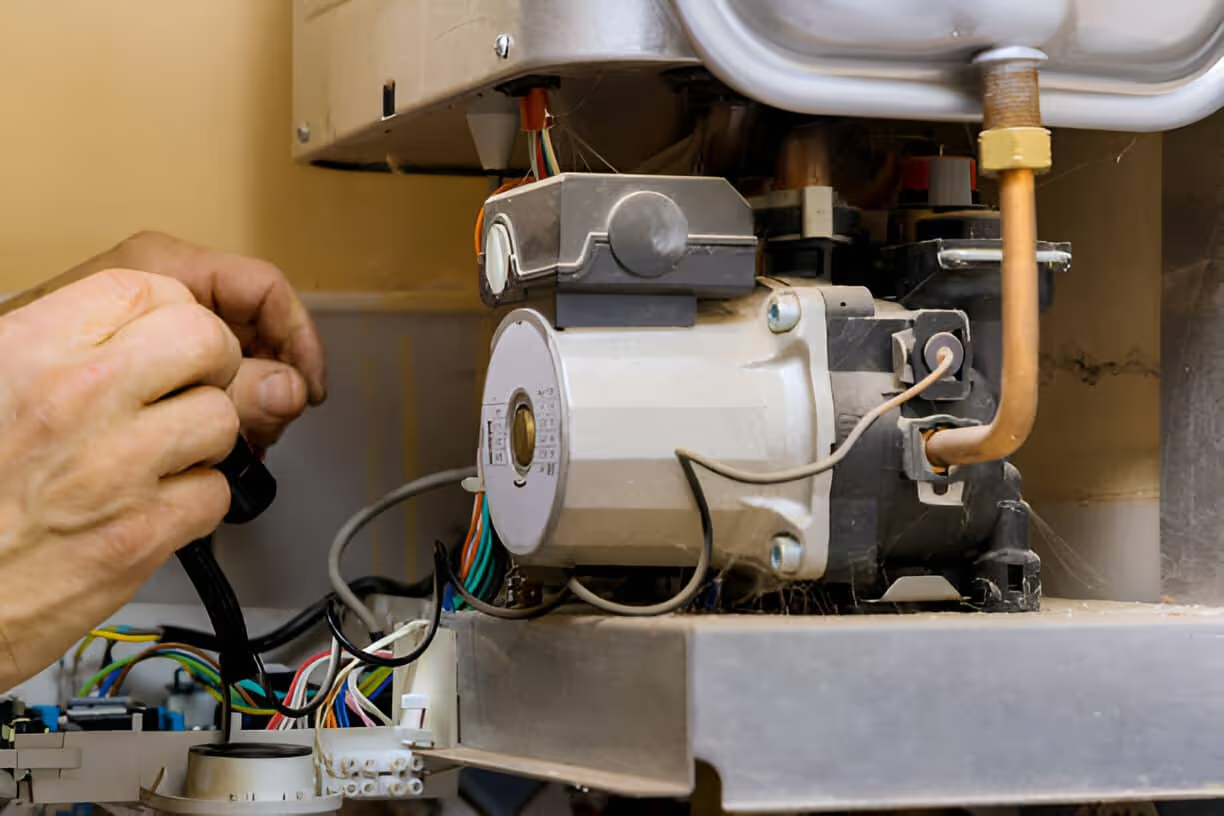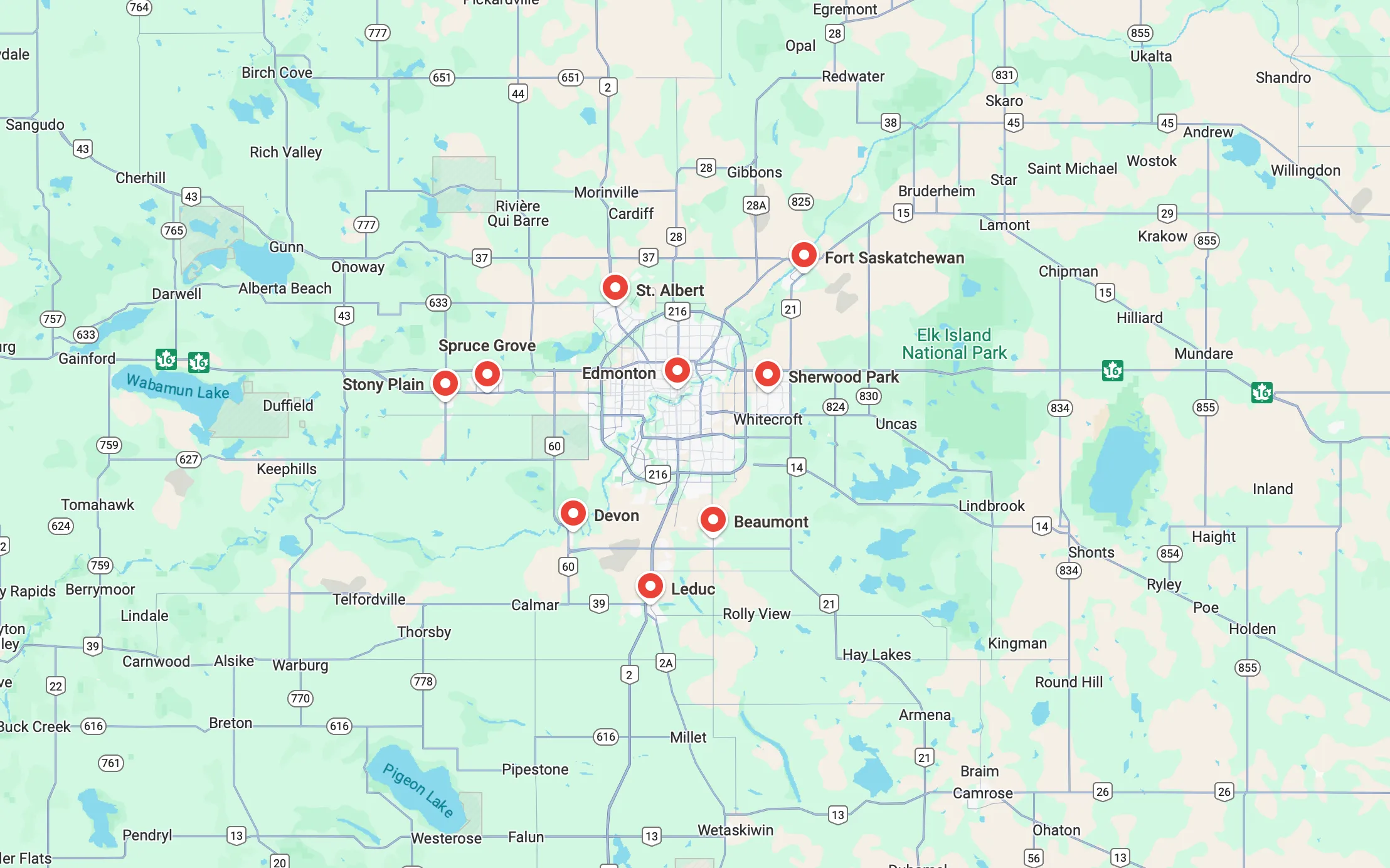Heating Repair in Devon, AB
Devon, AB residents trust prompt heating repair to restore reliable warmth during extreme winters. The page outlines common furnace, boiler, and heat pump failures, explains a step-by-step diagnostic process, and covers typical repairs and part replacements while prioritizing safety and efficiency. It also describes emergency and after-hours response, transparent pricing and warranties, scheduling workflows, and seasonal maintenance tips designed to reduce future breakdowns. The guidance emphasizes honest communication, accurate estimates, and durable, long-lasting repairs tailored to Devon’s climate.

Heating Repair in Devon, AB
Keeping your home warm and safe through Devon’s long, cold winters depends on prompt, professional heating repair. Whether your furnace won’t ignite, your boiler is losing pressure, or your heat pump is struggling through freeze-thaw cycles, reliable repair service restores comfort quickly while protecting your equipment and energy bills. This page outlines the common heating failures in Devon homes, how technicians diagnose problems, typical repairs and parts replacement, emergency and after-hours response expectations, transparent pricing and warranty practices, and practical guidance on scheduling service.
Why timely heating repair matters in Devon, AB
Devon experiences extended cold snaps, freeze-thaw cycles, and occasional heavy snow. Those conditions increase demand on heating systems and expose worn components to stress. Delaying repairs can lead to higher energy costs, complete system failure at the coldest moment, or safety risks such as carbon monoxide leaks from a cracked heat exchanger. Prompt repair minimizes downtime, reduces repair costs over time, and helps maintain safe indoor air.
Common heating problems in Devon homes
- Furnace won’t start or cycles on and off frequently
- Weak or uneven heat, cold spots on main floor or upper levels
- Unusual noises: banging, squealing, or rumbling from the furnace or boiler
- Frequent short-cycling or flaring pilot/light failure
- Boiler pressure drops, water leaks, or cold radiators
- Heat pump losing heating capacity, frosting outside unit, or long defrost cycles
- Thermostat inconsistencies or inaccurate temperature reading
- Increased energy bills without a change in use
- Odors of gas or burning (safety concern, immediate attention recommended)
Diagnostic procedure - what to expect
A professional heating repair tech follows a step-by-step diagnostic routine to identify the root cause before recommending repairs. Common elements include:
- Visual inspection of the unit, flue, vents, ductwork, and piping for obvious damage or blockages
- Safety checks: carbon monoxide testing for combustion systems, gas leak detection, and electrical integrity tests
- System start-up and observation to reproduce symptoms: checking ignition, burner flame, pressure readings, and airflow
- Electrical testing of components such as capacitors, motors, and control boards
- Refrigerant and refrigeration-system checks for heat pumps: pressure readings and thermostat operation
- Leak and pressure tests for boilers, plus inspection of the expansion tank, relief valve, and circulator pump
- Written diagnostic report with clear findings and repair recommendations
Technicians in Devon often account for weather-related issues like frozen condensate drains, outdoor sensor exposure, and increased wear from heavy seasonal use.
Typical repairs and parts replacement
Repairs target the failed component while preserving the life of the surrounding system when possible. Common repair actions include:
- Ignition and pilot system repair or replacement (hot surface ignitors, pilot assemblies)
- Flame sensor cleaning or replacement and burner servicing
- Blower motor repair or replacement, belt replacement, and wheel cleaning to restore airflow
- Thermostat recalibration or replacement, including upgrade to programmable or smart thermostats for better control
- Heat exchanger inspection and repair recommendations; cracked exchangers typically require replacement for safety
- Boiler repairs: fixing leaks, replacing valves, replacing circulator pumps, and restoring correct pressure levels
- Heat pump repairs: reversing valve, compressor, capacitor, contactor, and refrigerant repairs where applicable
- Duct sealing, filter replacement, and balancing to improve distribution and efficiency
Technicians prioritize fixes that restore safe operation and then focus on efficiency and longevity.
Emergency and after-hours response
Heating emergencies in winter are time-sensitive. In Devon, expect emergency response protocols designed for quick containment and temporary solutions followed by permanent repairs:
- Emergency triage to assess immediate safety risks such as gas leaks or carbon monoxide hazards
- Temporary fixes to restore heat or isolate unsafe components if full repairs can’t be completed immediately
- Typical emergency response windows vary by provider and severity: many services aim for same-day emergency response within a few hours during peak winter conditions; non-emergency repairs are commonly scheduled for next available appointment or within 24 to 72 hours depending on parts availability
- Technicians often arrive prepared to perform common repairs and carry commonly used replacement parts to minimize repeat visits
Transparent pricing and warranty information
Transparency reduces stress during an already stressful situation. Best-practice heating repair services provide:
- Written estimates before work begins that list parts, labor, and any diagnostic fees
- Clear explanation of required repairs versus recommended upgrades, with alternatives if applicable
- No-hidden-fee policies and itemized invoices upon completion
- Warranty coverage outlined in writing: service labor warranties typically range from a limited period (for example, 90 days) up to longer guarantees depending on the provider; parts often carry manufacturer warranties that can extend for multiple years
- Clarification on warranty conditions such as the need for regular maintenance to keep warranties valid
How scheduling and on-site workflow typically work
Scheduling guidance helps you plan around busy winter months:
- Request an assessment via phone, email, or an online service form; emergency lines are available for immediate safety concerns (providers will confirm availability and estimated response time)
- Appointments often include a scheduled arrival window; for emergency calls, expect shortened windows and priority routing
- On arrival technicians perform diagnostics, present a written estimate, and explain repair options before starting work
- Most repairs require homeowner authorization; technicians can often complete work the same day if parts are in stock
- Written reports and receipts include maintenance recommendations and warranty documentation for your records
Seasonal maintenance tips to reduce repairs
Simple homeowner actions lower the risk of winter breakdowns in Devon:
- Replace or clean filters monthly during high-use months to maintain airflow and efficiency
- Keep outdoor units clear of snow and ice buildup; check for proper defrost cycles on heat pumps
- Bleed radiators and check boiler pressure before the coldest weather arrives
- Ensure vents and returns are unobstructed by furniture or curtains
- Schedule annual pre-winter tune-ups for furnaces, boilers, and heat pumps to catch wear before it becomes a failure
Heating repair in Devon, AB, is about fast, safe restoration of heat, clear communication, and durable solutions that respect local climate challenges. With focused diagnostics, honest pricing, and reliable warranty practices, professional repair preserves comfort and safety so your home stays warm all winter.
Customer Testimonials
Hear from satisfied customers who trust us for reliable HVAC and plumbing service across Edmonton
















Customer Testimonials
Hear from satisfied customers who trust us for reliable HVAC and plumbing service across Wichita.
Service Areas


